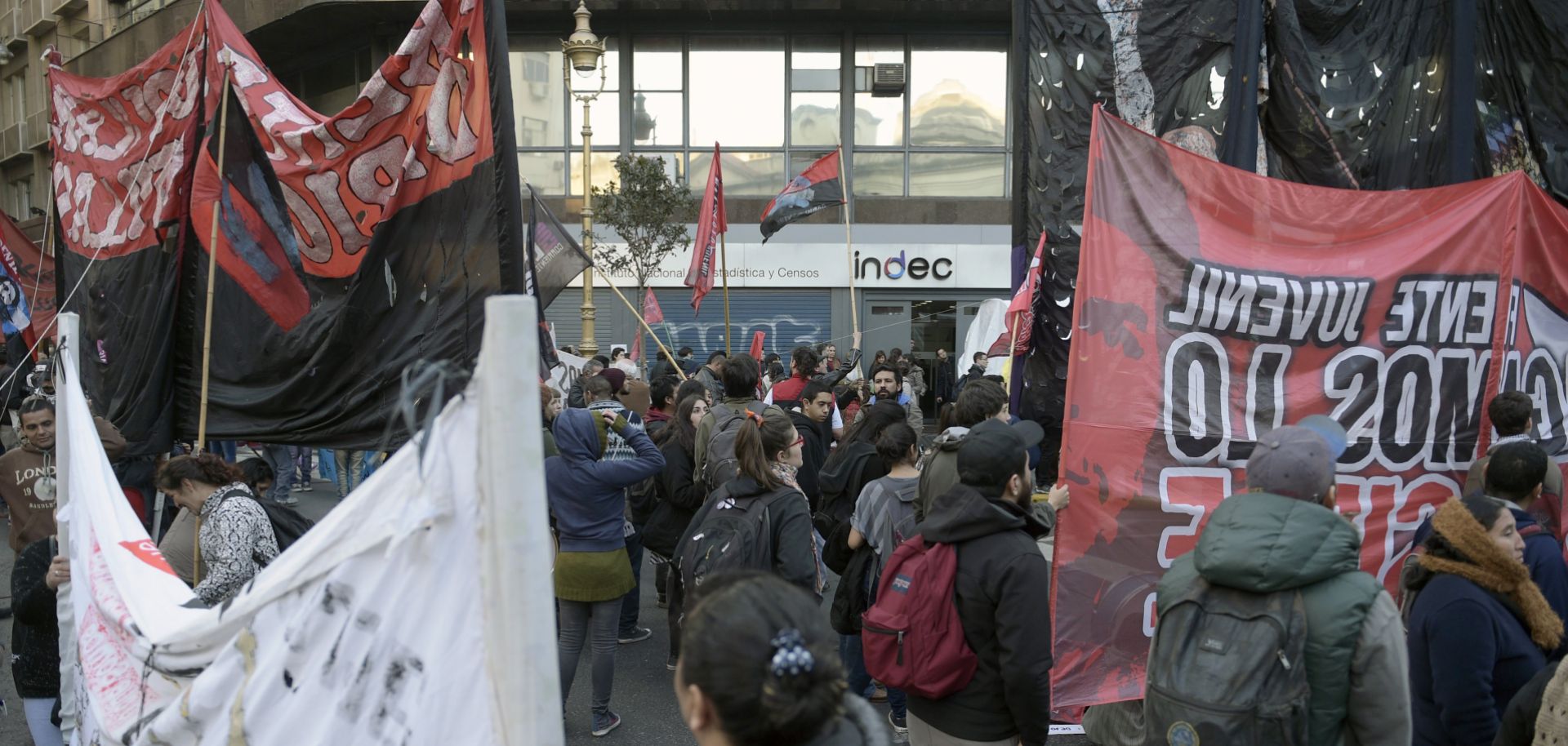ASSESSMENTS
Taming the Twin Headaches of Argentina's Economy
Apr 26, 2018 | 16:54 GMT

Activists in Buenos Aires, Argentina, protest at a government news conference on the release of inflation figures on June 15, 2016. It was the first official release of those numbers since the inauguration of President Mauricio Macri in December 2015. Argentina had halted the release for six months, and Macri said the numbers are the first honest estimate in years.
(JUAN MABROMATA/AFP/Getty Images)
Highlights
- To limit popular backlash, Argentine President Mauricio Macri has adopted a gradual approach to economic reform and trade liberalization, but it has generated weak results.
- While the economy recovered last year from a deep recession, a growing trade deficit and high inflation could put those improvements at risk ahead of Argentina's 2019 presidential election.
- Macri's chances for re-election could be severely undermined if his reforms don't start generating more visible economic results.
Subscribe Now
SubscribeAlready have an account?
